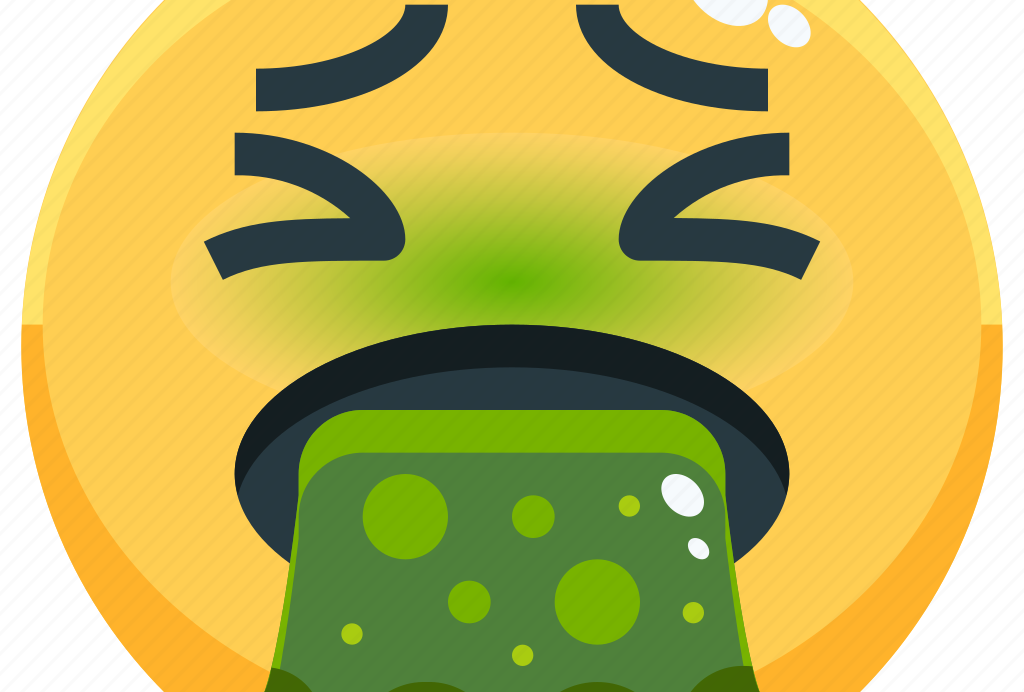“If you can sit with your pain, listen to your pain and respect your pain — in time you will move through your pain.”
―
Sometimes, an action or thing becomes so prevalent and commonplace in society that a term is developed to define it; emotional vomit is one such thing. E.V. is when our emotions erupt, spewing negativity and ugliness upon another person.
Expressing our feelings without restraint may feel good at the time, but it is not without consequences. We think we have the right because our emotions and feelings run deep, yet this thinking may damage relationships.
This explosion of emotion leaves the recipient feeling abused, resentful, and often needing to shower, washing away the negativity from the encounter.
This eruption occurs when negative life experiences pile up. It can be loaded with unfair personal insults, angry assault, and convoluted interpretations of events, colored with blame and defensive outbursts when expressed. It is often a coping mechanism that occurs to a triggering event because of a heightened reactionary response. While in this state, the person having the outburst is typically unable to step away from the situation or see the perspective of another. It can be compared to being so angry that you see red.
Emotional vomiting is uncool. It is selfish and intrusive, but the good news is it is manageable with some guidance.
It is important to remember that others are not doing anything to us. They can not make us feel a certain way. We get triggered because we are experiencing these reactions to our unresolved emotions. How we react is solely our responsibility.
We all have emotions; when they are not expressed, we may feel like they are boiling over. Yet, we must choose and be accountable for how we express our feelings.
Instead of immediately reacting and allowing our emotions to explode, we can defer them. Breathe. Bite our tongue. Walk away. Then, later, when we are in a calmer frame of mind, we can look at our reactions, for they are essential to who we are.
Learning to verbalize our emotions alleviates the pent-up feelings, quashing our need to erupt. We can process them positively once we desire to change how we respond. Venting is a healthy way of expressing thoughts and feelings.
Venting involves two people: the person who is venting and the listener. Venting works because another person hears us. It is important who you choose to vent to. They must be able to listen with active empathy. Venting is a beneficial way of letting off steam. After a good venting session, stress is lessened, perspectives can broaden, we feel more at ease, and a general feeling of optimism and well-being can occur.
The difference between satisfaction and frustration is when we can vent instead of emotionally erupt. E.V. is a toxic form of venting and should not be confused with the healthy type.
We are generally unaware of our emotional state or that of the recipient during an eruption. Boundaries no longer exist; playing dirty is fair game. There is no respect for the receiver, stealing their time and peace of mind. It also damages the trust and intimacy in the relationship. Although it may feel suitable for the moment, ultimately, it leaves one with anger and sometimes remorse.
Expressing ourselves is necessary for a balanced life.
How we do it is the key.
Instead of attacking, phrase your sentences with an “I” statement. For example, “I felt offended when you spoke to me so abruptly” or “I felt disrespected when you said what you said.” This will open up a conversation rather than a tirade of unkind words.
If you are on the receiving side of E.V., it is essential to set your boundaries. For example, offer the person your ability to listen without personal attack. If you cannot listen actively, you can say, “I can see that you are frustrated, and I wish I could offer support, but I’m unable to listen to you right now.”
It is not easy to change behaviors that we have had for years. And yet, no change can happen if we are unwilling to do our inner work. Living life is a series of choices. We can choose to become awakened humans or walk around asleep. If we determine the former, it takes desire, self-reflection, and discipline to wake up.
No one can live our lives for us, shoulder our burdens, or complete our lessons, for they are our journey. However, knowing when we acknowledge we want to change is the first step to taking control of our destinies. Make the decision, then venture into the first step.
You know what truly aches? Having so much inside you and not having the slightest clue of how to pour it out.
―






Unleashing the Fury: Exploring the Impact of Anger on the Immune System – ucsf-ahp.org
[…] Have you ever wondered if letting out a burst of anger could do more harm than good? In the heat of the moment, it might feel catharsis, but what if there’s a deeper outcome to our emotional eruptions? […]